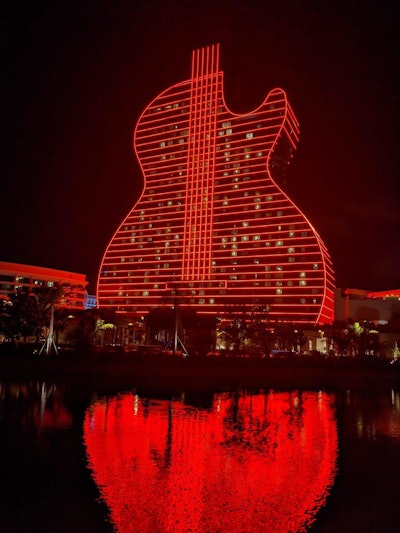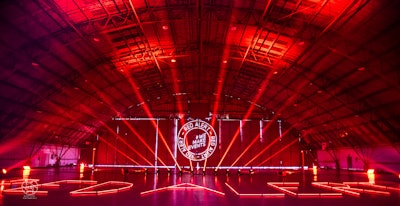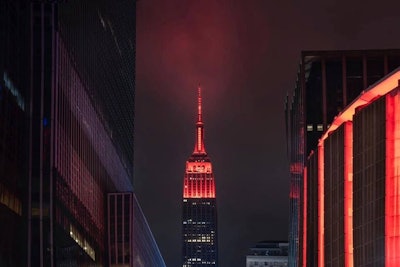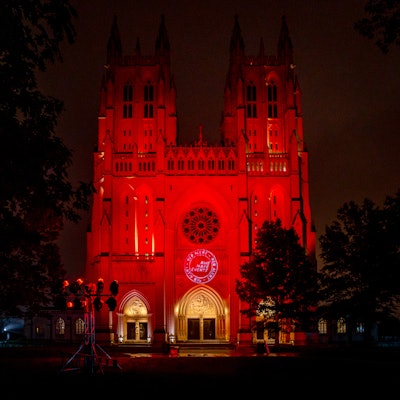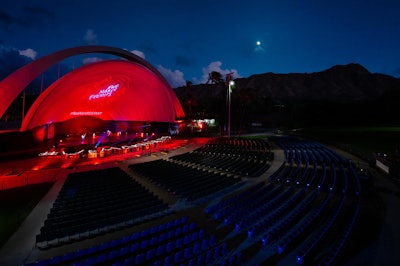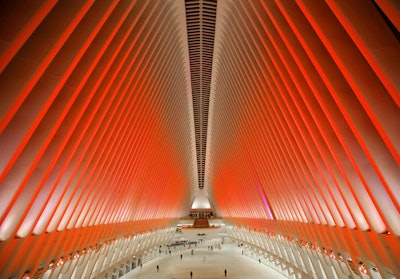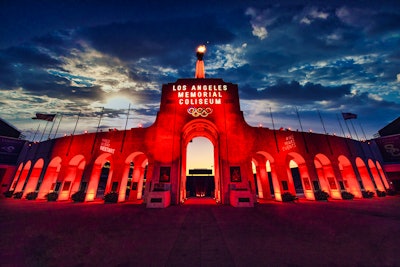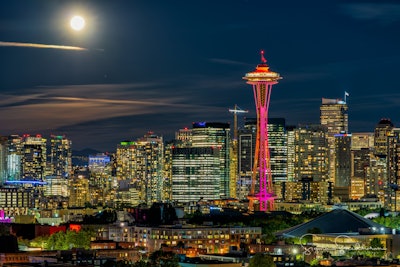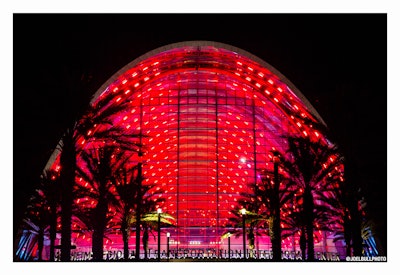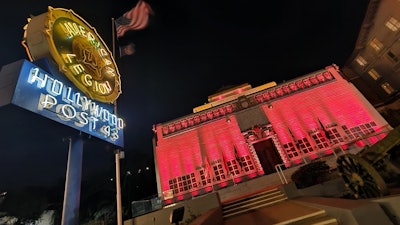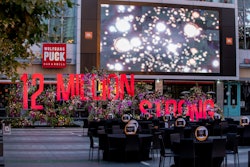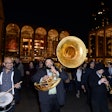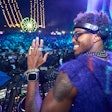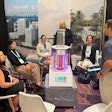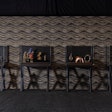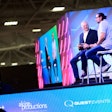 The Los Angeles Memorial Coliseum in Los AngelesPhoto: Dina Douglass
The Los Angeles Memorial Coliseum in Los AngelesPhoto: Dina Douglass
The industry's latest initiative, #RedAlertRESTART, held on the evening of Sept. 1, was one of its most headline-grabbing (and most colorful) yet. More than 2,000 event venues around the country were illuminated in red for three hours. The goal? To raise awareness and support for the 77% of U.S.-based event professionals who have lost their income due to the COVID-19 pandemic—and to encourage Congress to pass the RESTART Act and to extend and expand PUA and FPUC.
The initiative started in the United Kingdom, where a new coalition called #WeMakeEvents illuminated more than 700 venues on the evening of Aug. 11. A group of lighting professionals in North America took notice—and immediately sprung to action.
Brad Nelms, who now serves as national director for #WeMakeEvents North America, said the idea was born during a weekly Zoom-based happy hour for the lighting industry. “We were talking about [the U.K.] event and how cool it was, and came to the conclusion that we should do it here," Nelms said. "Nine or 10 of us volunteered to be on a committee to figure it out, and two days later we greenlit it.”
Planning the massive endeavor in just 18 days was no easy feat. Nelms and the rest of the committee—who all volunteered their time—reached out to the U.K. coalition for guidance and branding materials, and then began reaching out to contacts in various cities. About 58 regional directors were quickly appointed, who all formed their own teams tasked with reaching out to venues in their area.
Nelms said that each regional team was given three tasks: “The first was to get as many things lit up in red as possible and shared on social media with the hashtags,” he explained. “The second was to organize some kind of an event that was a good photo-op moment for press, whether that’s a stand-in or a case-push or a drive-by—whatever was possible and safe in terms of local constraints.” The third task? To get as much local press as possible.
“Every single team did a fantastic job at accomplishing at least two out of those three goals, if not all three,” Nelms said. “We think there were probably 7,000 to 10,000 people involved in pulling this off.” Ultimately, more than 2,000 venues committed to lighting up in red—and based on social media hashtags, Nelms estimated that hundreds more unofficially joined the effort on the day of.
To increase its reach, the team also hosted a four-and-a-half-hour livestream, which followed the initiative as it kicked off in local time zones from coast to coast. The stream, which appeared on Facebook Live and YouTube, featured live footage from around the country, including interviews with local event professionals, social media posts, facts about the industry, and more. As of press time, the stream had over 200,000 views on Facebook and another 10,500 on YouTube.
“The livestream certainly helped us get some more eyeballs on it; it was also a good way to help those involved feel like there was a visible event they could work toward,” said Nelms. “It made everybody feel like they were part of the big picture.” The stream also provided content that can be repackaged for additional advocacy efforts, he noted.
Nelms said the main goal right now is to keep drawing attention from mainstream media outlets and to continue encouraging letters to Congress. (#WeMakeEvents has a form letter on its site, which the group plans to keep updated as Congress resumes negotiations later this month. “Then call your Congressman, or text them, email them, write a letter—just let them know that this is a thing that affects everyone,” said Nelms.) He added that the Sept. 1 event has already generated hundreds of articles; there have also been supportive social media posts from the likes of Pearl Jam, Jack Black, NSYNC’s Chris Kirkpatrick, the Stone Temple Pilots, and other musicians.
“We're currently working diligently on packaging everything together to push towards Congressional leadership and say, ‘Look what we did, look who this affects,'" Nelms said. “This is a human issue, not a political issue.”
Scroll down for a look at just a few of the iconic venues around the country that participated on Tuesday night.
